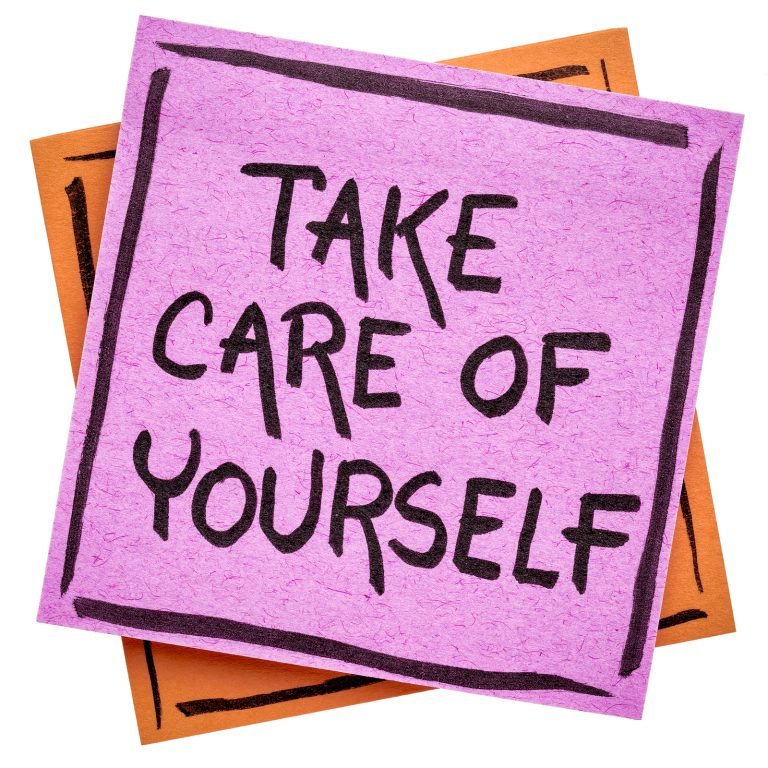Summer Self-Care
by SA Wellness Chair Alexia Cervantes,
July 26, 2023
Summer is here! Students celebrated graduation and year-long projects have ended all over campus. The quieter summer months are a wonderful time to reflect and plan. It may also be time for folks to get away from work for rest, or exploration. In the hallways you may hear people sharing they are taking time off for self-care. Fantastic! What does it mean to care for oneself? Let us look a little deeper.
Self-care is more than taking vacation. Self-care encompasses those conscientious activities we perform regularly that support our health and well-being. Hear this again – they are the things we do regularly, even daily. Practicing consistent, whole-person self-care builds resilience and stability in one’s life. One definition of whole-person self-care includes four aspects: Biological, Social, Psychological, and Spiritual.
Biological self-care is those things you might expect; nutrition, exercise, and sleep. Are you getting enough of each? When it comes to nutrition, exercise, and sleep folks can find making changes daunting. Simple reframing of physical habits can create lasting self-care changes. Instead of adopting a completely new diet, try replacing a baked good with a piece of fruit. You do not need to run a marathon; you can go for a 30-minute walk in the morning or evening. You can improve your sleep simply by eliminating screen time 30-minutes before bed.
Social self-care includes spending time with family and friends. This may not be easy to do if folks are far and you have competing schedules. Consider some other options like sending a quick text message when you are feeling a bit lonely or scheduling a weekly call with your favorite person. Also, be mindful of the amount of time you spend on social media. Scrolling on Facebook or Instagram gives us a false sense of connection. Your time may be better spent calling your bestie.
Psychological self-care can include everything from regular therapy appointments to daily meditation, to absorbing hobbies. It can also mean taking some time during the day to practice deep breathing, going outside for a quick break, or reading a short, inspirational poem. What is important to acknowledge is that bolstering robust mental health is a practice.
Lastly, and most importantly, is spiritual self-care. Spiritual practice can be different from religious practice. They are not necessarily the same. What they share is the development of a belief, whether that is a belief in a higher power or a belief in personal purpose. The Japanese cultivate their personal meaning of life, or ‘ikigai’, based on their talents and passions. By focusing on what they can contribute to the world around them, they create a deep sense of grounding and connection. A simple way to start is by setting an intention for your day – what can you do today to be of service to another. Or practice gratitude – what exists in your life for which you are deeply grateful, say thank you.
Should you still book that massage for a self-care afternoon? Or indulge in a treat at your favorite spot? Absolutely. We all need those moments as well. Consider this summer balancing these experiences with smaller, everyday changes that nourish your body and mind. AND take that vacation!
Visit the UCSD Employee Health and Wellness website for information on programs and events.
